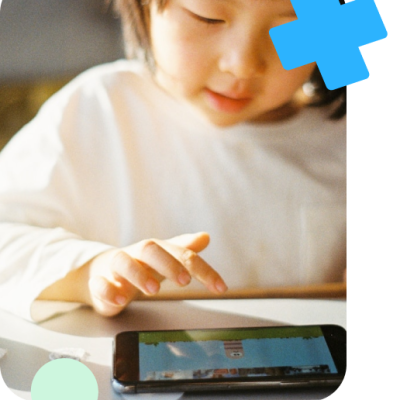Math doesn’t have to be a misery. With a little planning and creativity, math can be a joy.

Author
Taylor Hartley

Expert Reviewer
Jill Padfield
Published: September 1, 2023


Math doesn’t have to be a misery. With a little planning and creativity, math can be a joy.

Author
Taylor Hartley

Expert Reviewer
Jill Padfield
Published: September 1, 2023




Math doesn’t have to be a misery. With a little planning and creativity, math can be a joy.

Author
Taylor Hartley

Expert Reviewer
Jill Padfield
Published: September 1, 2023


Key takeaways
The collective groans of a class as a teacher unveils a new math topic is known all too well across fiction and reality. However, with a little ingenuity and open-mindedness, you can swap out the dread for enthusiasm and make learning math fun.
Not everyone takes to math immediately. Some people think better with words or images than with numbers, and these different ways of thinking can hinder new math students. Math also deals with a special sort of abstract thought that can be an obstacle since kids develop at different speeds.
The idea that a number can represent physical quantities and then expanding that out to larger and larger numbers can take some getting used to. Toss in adding, subtracting, multiplying, and dividing these abstract concepts, and some headaches are unavoidable.
For these reasons and more, it is okay to not like math at first. But if you want to make math fun, you should see if you can discover the reason for the frustration or boredom that may be standing in the way.
When you find a way to make math fun, you can easily overcome obstacles and challenges that can make progressing to more challenging topics seem impossible. Making math fun can also help inspire a greater love for learning and encourage curiosity about math and other topics, too.
As you associate the fun with solving math problems and learning the basics, future math lessons and problems will feel less like a chore and more of an opportunity to have some fun and grow as a person.
Making math fun is easier said than done, but, fortunately, there are plenty of options to bring joy and excitement to math time.
Incorporating interactive math games and real-world problems can spark curiosity, turning abstract concepts into tangible challenges. By blending creativity with foundational skills, both educators and parents can transform the typical math lesson into an adventurous exploration.
Many games require basic math skills, so if you are working with basic arithmetic, pull out some of those game night staples, and start learning.
Remember, you are not on your own with the formidable task of making math fun. There are numerous websites and digital resources available for free to help make practicing math skills exciting and highly interactive.
One of the best ways to make math engaging is to see the real-world application of those skills firsthand. Take the math you’re learning, and use it to make life a little easier.
Sign up for the DoodleMath app today!
Turn math into an adventure when you sign up for the DoodleMath app.
Along with making the act of practicing math fun, a fresh mindset is also invaluable. If you can go from thinking about math as a chore to something worthwhile and meaningful for you personally, you will find math fun and rewarding in no time.
Learning is a life-long journey, and there will always be new challenges to overcome and topics to master. That means that you will always end up making mistakes or getting confused, especially with math. Instead of getting frustrated at new topics, reflect on how much you have learned. Remember, you were likely frustrated with the topics you now consider second nature, and you will master these new topics as well.
Schools have a pretty good reason for teaching so much math, and, if you look around, you’ll quickly see how much math goes into things you interact with on a daily basis. Math plays into measuring ingredients for a recipe, budgeting out a lemonade stand, and figuring out how many minutes you have left before bedtime. Take every chance you get to apply math to your daily routine, and you’ll soon find how easy the math comes.
You should also look to the future. Math is a major component of many careers from engineering to personal training. Knowing that the math you are learning today will help you accomplish your career goals tomorrow will make those lessons more meaningful and enjoyable.
Math skills do not come easily, and you should take time to celebrate your success. This can be something as simple as chomping down on those M&Ms you were using to practice addition or taking a break after getting a few questions correct.
Learn to associate your journey in math with all the pleasant feelings you get from these celebrations and rewards.
We understand that diving into new information can sometimes be overwhelming, and questions often arise. That’s why we’ve meticulously crafted these FAQs, based on real questions from students and parents. We’ve got you covered!
It’s important to associate math with positive feelings. This connection will improve retention, inspire further curiosity, and make future math lessons much more manageable.
Use a combination of incentives, games, and real-life applications to make math much more fun to learn. Reward successful completion of practice problems, check out online math games, and point out how the math can be used in daily activities.
Math puzzles like Sudoku are a great place to practice addition, but you can also apply math questions to other games. You can make math Jeopardy or a math-based scavenger hunt where answers reveal hints to the location of hidden objects. You can also try a math practice app.
Make an effort to notice and call out moments where you use math in daily activities. You can also look at future jobs and research how math factors into those careers.

Title 1
Helpful description
Read now
Title 2
Helpful description
Read now
Title 3
Helpful description
Read now
Title 1

Helpful description
Read now
Title 2

Helpful description
Read now
Title 3

Helpful description
Read now
Lesson credits

Taylor Hartley
Taylor Hartley is an author and an English teacher based in Charlotte, North Carolina. When she's not writing, you can find her on the rowing machine or lost in a good novel.

Jill Padfield
Jill Padfield has 7 years of experience teaching high school mathematics, ranging from Alegra 1 to AP Calculas. She is currently working as a Business Analyst, working to improve services for Veterans while earning a masters degree in business administration.

Taylor Hartley
Taylor Hartley is an author and an English teacher based in Charlotte, North Carolina. When she's not writing, you can find her on the rowing machine or lost in a good novel.

Jill Padfield
Jill Padfield has 7 years of experience teaching high school mathematics, ranging from Alegra 1 to AP Calculas. She is currently working as a Business Analyst, working to improve services for Veterans while earning a masters degree in business administration.

Parents, sign up for a DoodleMath subscription and see your child become a math wizard!

Book a chat with our team
If you’d like to use Doodle’s browser version, please visit this page on a desktop.
To log in to Doodle on this device, you can do so through our apps. You can find out how to download them here: